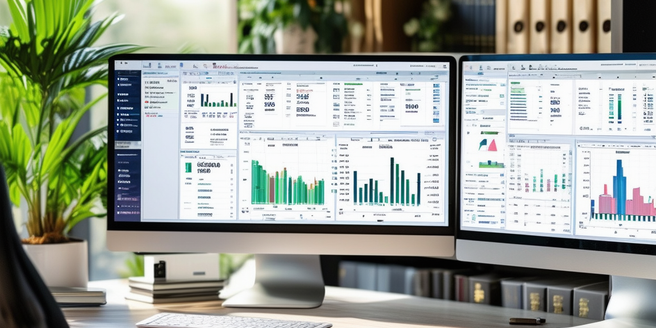Introduction to Online Brokerages
Online brokerages have revolutionized the way individual investors access the stock market. By providing sophisticated trading platforms and tools, they have made stock trading accessible to everyday people. These platforms eliminate the need for a traditional broker, thereby reducing the associated costs. Additionally, they often offer educational resources to aid new investors in making informed decisions. Furthermore, online brokerages typically offer lower fees and commissions compared to their brick-and-mortar counterparts, making it easier for investors to maximize their returns. With the rise of mobile technology and the internet, investors can now trade from virtually anywhere, anytime.
Key Features to Look For
When choosing an online brokerage, it’s essential to consider several key features. Look for a platform that offers a user-friendly interface and advanced trading tools. Educational resources are crucial for new investors, so a good brokerage should provide webinars, tutorials, and articles. Moreover, investigate the fees and commission structures to ensure they align with your trading strategy. Additionally, consider the availability of various account types and investment options. Security is paramount; ensure the brokerage uses encryption to protect your data. Finally, check the customer support options available, as you’ll want responsive and knowledgeable assistance if issues arise.
Comparing Fees and Commissions
Fees and commissions can significantly impact your overall investment returns, so it’s important to compare them across different online brokerages. Some platforms offer commission-free trading on certain assets like stocks and ETFs, which can be advantageous for frequent traders. However, other fees, such as account maintenance or inactivity fees, might still apply. It’s essential to review the fee structure carefully to understand what you’re being charged for. Along with comparing fees, consider the quality of service and tools provided by each brokerage. Additionally, some brokerages offer tiered pricing based on trading volume, which could benefit high-volume traders.
Trading Platforms and Tools
A robust trading platform is a key element of any online brokerage. Look for platforms that provide real-time data, customizable charts, and technical analysis tools. Advanced platforms might offer algorithmic trading, backtesting capabilities, and integration with other financial tools. Security features should not be overlooked, as they are crucial for safeguarding your investments. Furthermore, efficient customer support can make a significant difference when issues arise. User experience is also important, so a platform that is intuitive and easy to navigate can be very beneficial. Additionally, mobile trading apps allow for trading on-the-go, which is essential in today’s fast-paced market.
Customer Support and Resources
Reliable customer support is crucial when trading online. Look for brokerages that offer multiple channels of support, including phone, email, and live chat. The best platforms provide 24/7 assistance and have knowledgeable representatives who can handle a wide range of issues, from technical problems to trading inquiries. Additionally, educational resources such as tutorials, webinars, and comprehensive FAQs can help you become a more informed and confident investor. Access to timely assistance can make a significant difference when unexpected issues arise. Good customer support can significantly enhance your trading experience and ensure any issues are resolved promptly.
Pros and Cons of Popular Brokerages
Different online brokerages have their own sets of advantages and disadvantages. Some may excel in low-cost trading but lack advanced features. Others might offer excellent customer service but charge higher fees. For example, a platform like Robinhood is known for its commission-free trading, but it may not offer the extensive tools that more advanced traders require. On the other hand, frequent traders might find value in platforms that provide real-time analysis and research capabilities. Conversely, TD Ameritrade provides a comprehensive suite of tools and educational resources but might have higher fees. It’s important to weigh these factors based on your individual needs and trading style.


